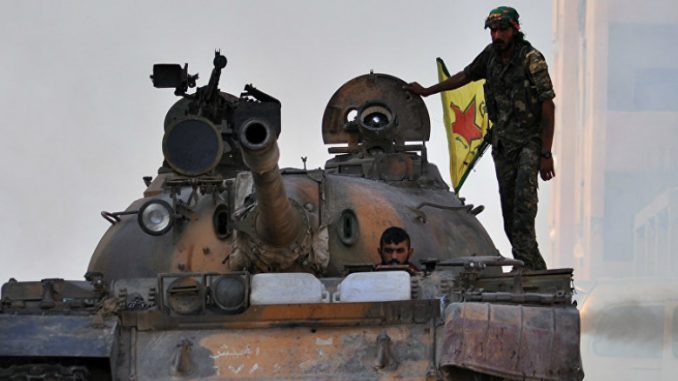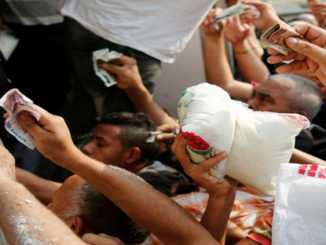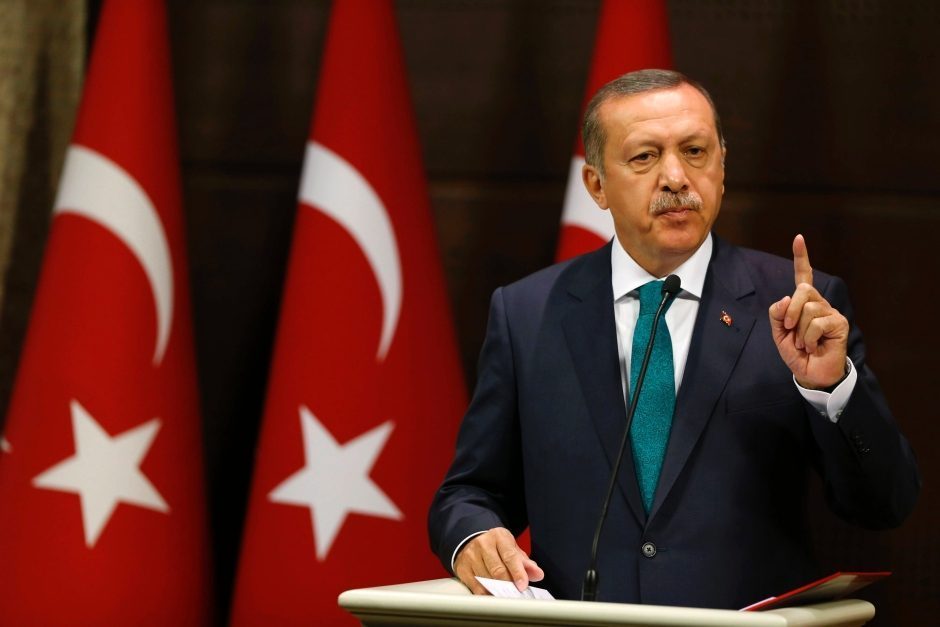
While Russia and Turkey sought hardly to establish a nation-wide ceasefire in Syria, the Syrian Kurdish militias and their allies said on Thursday they approved a blueprint for a system of federal government in northern Syria, reaffirming their plans for autonomy.
The aim is to cement the autonomy of areas in northern Syria where Kurdish groups have already carved out self-governing regions since the start of the war in 2011 and declared a federal area there in 2016, though Kurdish leaders say an independent state was not the goal.
On 17 March 2016, the Kurdish groups self-declared the establishment of a federal system of government as the Federation of Northern Syria–Rojava
Increasing Kurdish influence in northern Syria has alarmed neighboring Turkey, while the United States also opposed the federal plan first announced in March. The Assad regime also opposes federalism.
The blueprint amounts to a constitution, known as the social contract, and was expected to be approved on Wednesday or Thursday at a meeting of a 151-member council in the city of Rmeilan, according to Hadiya Yousef, who chairs the council.
“I expect ratification because we have discussed the content with all groups and political sides repeatedly, and the draft was worded with consensus,” she said in a written message to Reuters.
“We will clarify through the contract… the means for starting the formation of our institutions and administrative system, and we will start preparations for elections,” she added. The first elections would be on regional administrations, to be followed by an election of a central body.
“The social contract draft was ratified,” Mansour al-Salloum, joint head of the Founding Council of the Federal System, told Reuters in Rmeilan in northeast Syria.
“The executive committee will prepare for elections” first to regional administrations and later to a central body, he said, without giving a date for the votes.
Salloum said that for areas currently outside the control of the Kurds and their allies, such as Islamic State-held Raqqa, the local population would ultimately decide whether they wanted to be part of the federal system.
Wasn’t invited to Syria peace talks
The ceasefire agreement the Russian president Vladimir Putin announced was between the Syrian opposition and Assad regime, without any mention for the Syrian Kurds.
They have benn also excluded from previous peace talks hosted by the UN in Geneva.
Syria’s Kurdish Democratic Union Party (PYD) was not invited to join the new ceasefire deal in Syria, the party co-chairman, Saleh Muslim said.
“We aren’t included… Nobody asked us to join the truce because countries in the region deny that there is a nation called Kurds,” Muslim said.
Some Kurdish groups declared the establishment of a new opposition group to be bale te take part in the future
The establishment of the Syrian Democratic Front was announced on Monday. The organization’s spokeswoman, Mais Krydee, told Sputnik that the front consists of the Committee for National Democratic Action in Syria, the Syria National Dialogue Committee with its four parties, and a Kurdish group.
Mahmoud Marai, the secretary general of the Syrian Democratic Front, said earlier on Thursday that the group was ready to take part in peace talks on Syrian reconciliation in Astana.
Saleh Muslim said also said that the establishment of the Syrian Democratic Front that unites broad forces of the internal opposition and Kurdish groups, will not lead to Kurdish engagement in the intra-Syrian talks in Astana and Geneva.
“I do not think that establishment of this opposition group will help to engage Kurds into talks and help to solve Kurds’ question,” Saleh Muslim said.
The US backs the autonomy in shadows
The US administration has been backing the Kurdish militias for years, calling them partners in the fight against ISIS. This support gave them the tools to expand their territory and pose a major threat to both Turkey and Syria’s unity.
In fact, Kurdish militias use US support to launch offensives against new areas under the term of fighting ISIS, while the force the Arab citizens to flee their homes, so the Kurdish militias can force control over new areas and add it to their cantons.
They are accused of making ethnic crimes against Arab citizens in northern Syria, and an organized displacement plan pf the original residents to make their goals in separating the area from Syria easier to achieve.
Syrian Kurdish groups have made no secret of their aim to link up their two autonomous regions, or cantons, in northeastern Syria with one further west – Afrin. Their dreams were threatened after Turkey backed Syrian rebels retrieves the 80 km stretch of territory at the Turkish border near Manbij from ISIS and ordered the Kurdish militias to leave the area.
The United States has boosted supplies of weaponry to the Syrian Kurdish Democratic Union Party (PYD) that is considered to be an affiliate of the Kurdistan Workers’ Party (PKK) labeled as terrorist by Ankara, Turkish media reported on Wednesday, citing its sources.
On December 24, the US ambassador to Turkey said the United States did not provide direct military support to the PYD. However, according to the Anadolu news agency, in the last two weeks alone the US weaponry was delivered three times to the northeastern Syrian province of Hasakah.
The agency claims that on the day the ambassador made his statement, a plane with US weapons on board landed at the Rumeilan airport. The weapons then were reloaded into US Army helicopters and delivered to other regions of the country, Anadolu explained.
According to the agency’s sources, the latest major weapons delivery to the northern regions of Syria took place late on Tuesday. Moreover, dozens of heavy trucks have left Erbil in northern Iraq to reach regions of Syria controlled by the Kurdish self-defense forces, Anadolu added.
The Syrian crisis began as a peaceful demonstration against the injustice in Syria. Assad regime used to fire power and violence against the civilians and led to armed resistance. 450.000 Syrians lost their lives in the past five years according to UN estimates, and more than 12 million have lost their homes.



